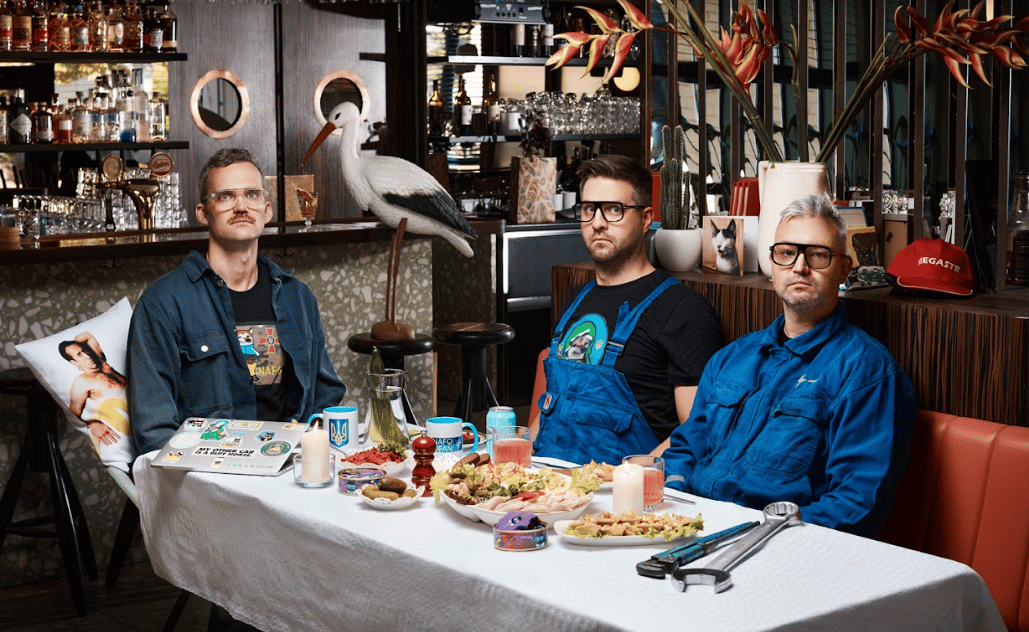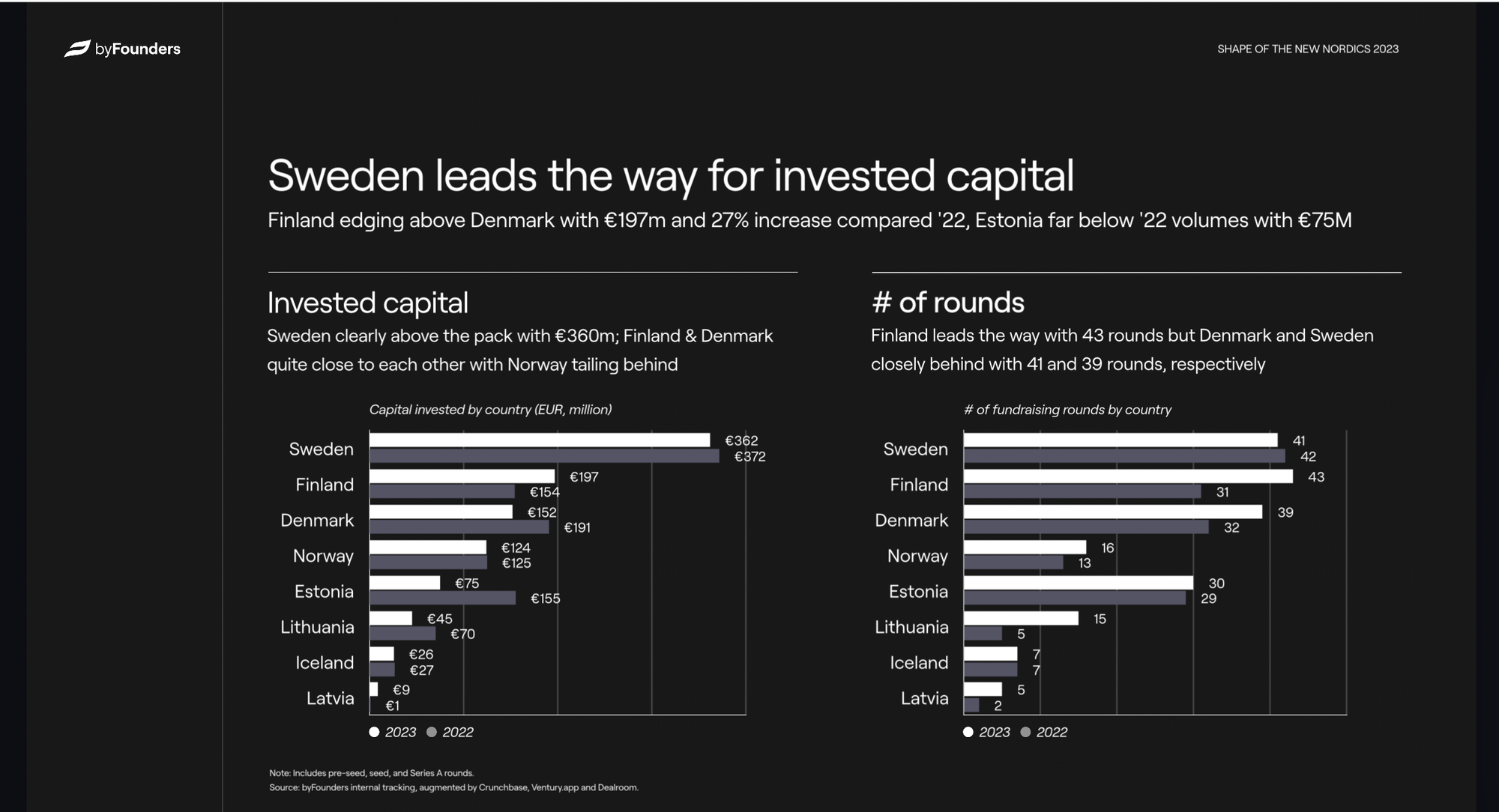The Next #1 — Unfolding
Welcome to the inaugural edition of The Next. Speculating on the Klaus acquisition, recapping New Nordics funding, and also drones and books.

Hello, this is The Next — a newsletter about New Nordics' tech scene and ideas on progress. My name is Mike, I'm a former Deputy Editor-in-Chief at Forbes Ukraine who's now doing things on the investment side (Invest Estonia, SID Venture Partners). I'm currently based in Tallinn, Estonia.
Preface
- The focus of The Next will be on the most interesting deals and launches from New Nordics (that's 🇫🇮🇸🇪🇩🇰🇳🇴🇮🇸 + 🇪🇪🇱🇻🇱🇹). I seriously considered putting Finland into the Baltics section, but let's not escalate things from the very beginning.
- Expect some Estonian bias in coverage at the beginning. Ukraine will be on the menu too, as well as my book notes.
- The idea is to publish weekly + deliver special editions once in a while. No attempt to cover every single thing will be made. The newsletter will be opinionated and selective.
- It's free, but once things get going, I will produce paywalled content too. For now, you can subscrive to support the effort. Which is a terrible incentive, I know!
With that being said, welcome.
Klaus makes it big
Few things are as characteristic of Estonian tech ecosystem as its alumni culture. Bright individuals branch off from successful companies and make it on their own. From the legend of Skype, this scheme repeats every few years.
Klaus, an AI-startup building sophisticated customer relations tools, is another proof. Last week, it was acquired by Zendesk for an undisclosed sum. Technically, the deal is still pending, but I don't see antitrust bodies meddling with it.
Klaus is built and run by ex-Pipedrive employers — Kair Käsper, Martin Kõiva and Egon Sale, and it refines all things customer care. If you want your support quality at the very top, you go Klaus: QAs, surveys, advanced tracking and automation. From what I've heard, it's a really well-made product. Zendesk, which was itself acquired for $10B in 2022, is playing on the same field — it's an industry standard suite for sales and customer support.

Now let's run some sketchy numbers. Klaus has raised a €12M Series A deal in October 2022. Assuming a typical dilution of 20%, the acquisition should push through the €60M mark. Yeah, VC maths is no joke. But it might be a little bit different this time.
Pulling data from the Estonian business register, the company made around €4,3M in revenue in 2023. I would treat this figure as a lower estimate. What's more certain is the list of winners: besides founders, the biggest shareholders were Creandum (20%), Acton Capital (13,6%), Rocket Internet (12,6%) and Icebreaker (9,5%). So the company is diluted a bit more than you'd expect at this point, with top shareholders controlling 55%. Their IRR will soon get better, I suppose.
You might think I start to get salty and claim the deal is not a spectacular success. Not at all. I actually think otherwise. Congratulations to Klaus! What I'm more intrigued is to see the money finding their way back into the Estonian ecosystem in the next years. This circular motion may create something even more impressive!
Things get funded
byFounders – the community-powered VC of the New Nordics — just released an awesome report about the state of early-state financing in the region. It's a good one.
- €990M invested across 196 deals. Sweden is the overall undisputable leader and almost equalled 2022 numbers. Surprisingly, Estonia is not the first in per capita stats — Iceland take the lead.
- The year was one big rebound trajectory, with Q4 netting the most deals. Could curve holds? I hope so, especially seeing that round sizes dropped, and companies are raising at a more mature age.

- Energy and FinTech sectors are stealing the show. Anyone surprised?
- Somebody, help Latvia 🇱🇻. €9M invested is not enough to sustain an ecosystem, although in 2022 it was somehow €1M at all.
I would strongly recommend you going through the slides if you are into that. As a founder, check the "most active VC funds" appendix — lots of good names there.
Eric Schmidt flies high
Ex-Google CEO Eric Shcimdt and Sebastian Thrun, a co-founder of Google's innovative lab, went deep into some secretive drone project, reports Forbes. The inspiration comes from Shcimdt's visit to Ukraine, where drones reign supreme on the battlefield. I will keep this note short — drones are insanely disruptive, and they will change the war forever.
It's a proximity fuse invention of our time. As I've read in Vannevar Bush memoirs, once put into action, the fuse made air defence 5-7x more effective. Now, the lifespan of a Russian tank on the battlefield is slashed by the similar multiple.
Schmidt is smart to make moves, and there will be many more who will follow. Yet the current disruption is not even the final one. Once the AI will be good enough to go into the autopiloting mode — and I would urge not to underestimate the complexity here — things will change once again. For now, learning FPV racing is a solid skill to repel an invasion.
What I read
I will try to keep a public record of my latest readings (see 2023's review here). This week:
- "Build!" by Tony Fadell. An advice book from the Apple legend and Nest co-founder, this book teaches you to network, grind and be reasonably pushy. Salted with some insider stories from Apple and Google HQs, it starts very down-to-Earth and ends in a "how to handle a board" type of suggestions.
- "The Quark & the Jaguar" by Murray Gell-Mann. One day I will properly introduce the science of complexity into this newsletter. For now, I try to grasp it myself, and these memoirs of a Nobel Prize physics laureate are a part of that journey. Incredible dense reading on ideas and physics (quantum mechanics mostly).
That's it for the first issue, except for some post scriptum remarks.
First, sorry for the mistakes. English is hard to master, and I'm still on it.
Second, you are absolutely welcome to criticize, suggest and chat with me. Reach at michail@sapiton.me
